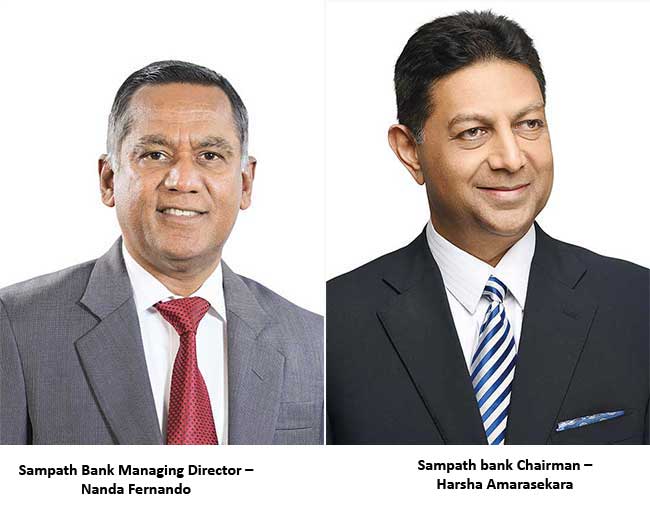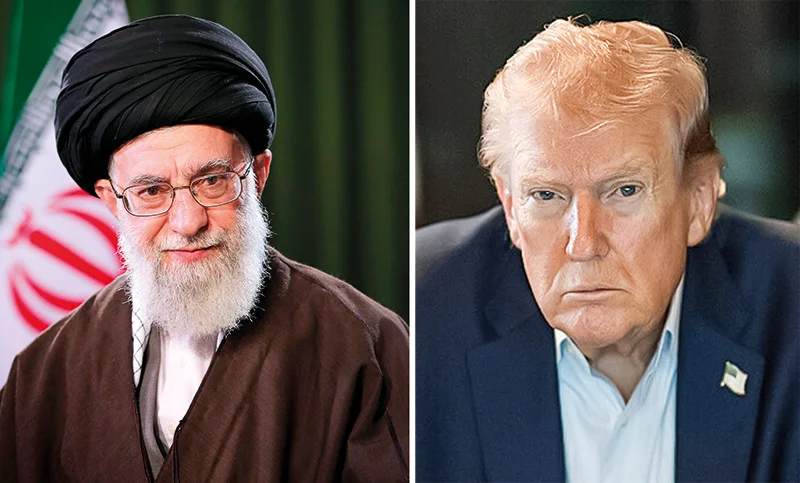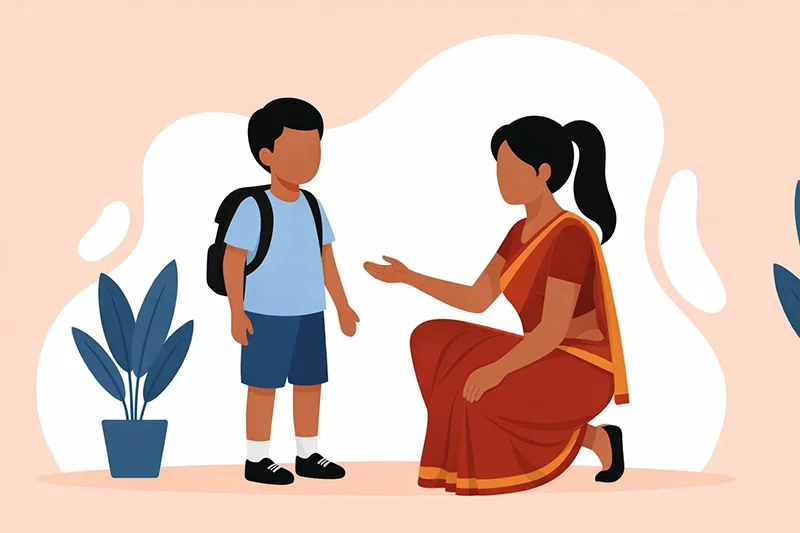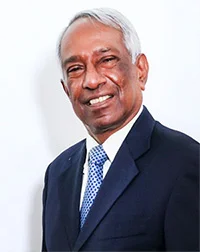Features
Sampath Bank maintains a strong value proposition to all its stakeholders amidst ongoing economic challenges

Sampath Bank continued to reinforce its commitment to all stakeholders notwithstanding the ongoing economic challenges. Stepping in to support the customers affected by the prolonged economic downturn, the Bank continued to offer tailor-made options and alternative repayment plans to help its customers sustain their businesses while staying true to its ethos of customer value creation. Similarly, the interests of another stakeholder group of the Bank, the shareholders, were kept in mind by paying the industry’s highest cash dividend of Rs 3.45 per share and a further Rs 1.15 per share in the form of scrip dividend.
The Bank also continues to honor its commitments towards the community via the “Weweta Jeewayak” tank restoration initiative as well as the Oceanic Ecosystem Restoration initiative titled “A Breath to the Ocean” which includes coral restoration, mangrove planting, and turtle conservation programs. The Bank continues to honour its commitment towards the community by focusing on environmental sustainability and towards that end completed the restoration of the Halgahawala forest reserve which it will continue to support even after the project’s conclusion.
The Bank succeeded in raising Rs 10 Bn in Tier 2 capital via a debenture issue in February 2023. Despite the depressing economic outlook in the Country, the issue was oversubscribed – a testament to the investor confidence placed in Sampath Bank and widespread acceptance of the stability and prudent governance of the Bank. The newly obtained capital will enable the Bank to rise above and prevail as one of the Country’s pre-eminent Bank.
Sampath Bank registered a profit before tax (PBT) of Rs 4.5 Bn and a profit after tax (PAT) of Rs 2.6 Bn for the three months ended 31st March 2023, indicating a decline of 30.5% and 44.3% respectively from the figures reported in 1Q 2022. This decline was mainly attributed to the exchange losses recorded during the quarter as a result of the appreciation of LKR by Rs 39 against the USD on its foreign currency reserves. All other income lines recorded performance well above the previous period.
Key highlights of financial results declared by Sampath Bank and the Group for 1Q 2023 compared to 1Q 2022:
* Strong NII buttressed by the higher AWPLR.
* 19% increase in net fee and commission income driven by trade-related operations
* As a result of the appreciation of LKR against USD by Rs 39 in 1Q 2023 vs depreciation of Rs 93.75 in 1Q 2022, the exchange income declined by Rs 10.9 Bn.
* 27% increase in impairment provision on loans and advances.
* The high inflationary conditions resulting in 22% increase in operational expenses.
* The upward revision in Income Tax rate and the introduction of SSCL resulting in higher tax expenses.
* Group’s PBT and PAT for 1Q 2023 was Rs 5 Bn and Rs 3 Bn respectively, reflecting a decline of 27% and 38% respectively.
Fund based income.
Sampath Bank reported a total interest income of Rs 50.2 Bn in 1Q 2023, up by 102% from the Rs 24.9 Bn recorded in the corresponding period of the previous year. The AWPLR moved up significantly from 9.85% at the end of the first quarter of 2022 to 21.4% at the end of the first quarter of 2023. Because of the higher interest rates that existed throughout the reporting period compared to the preceding period, the Bank was able to register a substantial increase in interest income.
Interest expenses too grew in line with the previously indicated interest rate hikes resulting in the Bank recording a total interest expense of Rs 32.1 Bn in the first quarter of 2023, an increase of 183% over the figure reported in the first quarter of 2022. As a result, net interest income increased by 34% in the first quarter of 2023.
However, the Net Interest Margin (NIM) of 5.60% reported at the end of the quarter under review showed a decline of 6 basis points from the figure reported at the end of 2022. The downward trend in AWPLR reported since the end of 2022 was the primary cause of the decline in NIM.
Non-Fund based income.
The Bank’s Net fee and commission income (NFCI) increased by 19% in the first quarter of 2023 compared to the corresponding period in the previous year. NFCI includes income from a variety of sources, including loans and advances, credit cards, trade and electronic channels. First-quarter growth was mainly attributable to the increase in fee and commission income derived from trade and remittance related activities.
Sampath Bank posted a net other operating loss of Rs 4.4 Bn in the first three months of 2023, compared to a gain of Rs 8.7 Bn reported in corresponding period of 2022, denoting a decline of 151%. This was due to the reversal of exchange gain amounting to Rs 4.5 Bn, resulting from the 10.7% appreciation of the LKR against the USD. However, the Bank recorded a net trading gain of Rs 1.7 Bn for the period under review, compared to a loss of Rs 0.4 Bn in the corresponding period of the previous financial year, mainly due to forward exchange contract revaluation gains. On this basis, the Bank’s net exchange loss from foreign exchange operations for the period under review was Rs 2.8 Bn (1Q 2022: A gain of Rs 8 Bn)
Impairment charge
The Bank recorded a total impairment charge of Rs 6.9 Bn for the first quarter of 2023, 41% less than the charge for the corresponding period in the previous year. The impairment charge for the first quarter of 2023 consisted of Rs 6.2 Bn on account of loans and advances (Q1 2022: Rs 4.9 Bn) and Rs 0.4 Bn for other financial instruments (Q1 2022: Rs 6.7 Bn). In addition, an impairment charge of Rs 0.4 Bn was recorded against commitments and contingencies (Q1 2022: Rs 0.2 Bn).
Impairment charge on loans and advances: In the first quarter of 2023, the impairment charge for loans and advances increased by 27% compared to the same period in the previous year.
Impairment on Individually Significant Loan (ISL) Customers:
During the first quarter of 2023, the Bank evaluated a substantial portion of its loans and advances under the ISL category, taking into account both their financial strength and external macroeconomic pressures. Consequently, Rs 4.6 Bn was charged as impairment provisions against ISL customers in the first three months of 2023, an increase of Rs 1.3 Bn compared to the same period in 2022.
Even though a slow recovery was witnessed in some vulnerable industries, the Bank prudently maintained the previous level of impairment provisioning against ISL customers in these industries as it did not deem that the industry risk had significantly declined.
Collective Impairment: Impairment models used in 2022 were continued in 1Q 2023 to ensure adequate buffers were in place to absorb any potential credit risk that could arise in future. This cautious strategy was in response to the uncertain economic conditions witnessed both locally and globally. The Bank continued to maintain in 2023, the allowance for overlay which it applied in 2022. The probability weightage applied to the worst-case economic scenario remained unchanged during the reporting period.
During the period under review, the Bank also proceeded to reclassify customers from Stage 1 to Stage 2 considering their potential credit risk. Meanwhile customers operating in Risk Elevated Industries were also reclassified under Stage 2, with additional provisions recognized against them.
Impairment charge on other financial instruments:
The impairment charge on other financial instruments amounted to Rs 0.4 Bn for 1Q 2023, a 95% reduction compared to Rs 6.7 Bn reported in the corresponding period of the previous year. In 1Q 2022, the Bank recognised a substantial impairment charge against FCY denominated government securities in response to the downgrade of Sri Lanka’s sovereign rating in April 2022 and the announcement by the Government of Sri Lanka (GoSL) on the restructuring of the country’s external debt through an IMF-supported economic adjustment program. No such provisioning was deemed necessary in 1Q 2023 as substantial provisioning had already been recognized against the said instruments as at 31st December 2022.
Operating Expenses.
Operating expenses in 1Q 2023 showed a 22% increase in comparison to the first quarter of 2022. The 41% increase in other expenses could be attributed to the prevailing inflationary conditions and other factors such as LKR depreciation, increased taxes and import restriction. Personnel costs too grew by 7.4% in 2023 mainly owing to annual salary increases.
Tax Expenses
Total effective tax rate of the Bank increased to 57% in 1Q 2023 from 42% reported in 1Q 2022, owing to the combined effect of the newly introduced Social Security Contribution Levy (SSCL) and the increase in income tax rate.
Key Ratios
The Return on Average Shareholders’ Equity (after tax) decreased to 8.37% as at 31st March 2023 from 10.95% reported at the end of the year 2022. Return on Average Assets (before tax) stood at 1.38% as at 31st March 2023 as against the 1.16% reported as at 31st December 2022.
Capital Ratios
The Bank’s latest capital adequacy ratios improved further in 1Q 2023 from the figures reported in the previous quarter in addition to their being well above the regulatory minimum requirements. As at 31st March 2023, Sampath Bank’s CET 1, Tier 1 and total capital ratios were at 12.51%, 12.51% and 16.12% compared to 11.92%, 11.92% and 14.27% respectively at the end of 2022. These increases are attributed to two main reasons – Rs 10 Bn worth of Tier 2 capital infusion in February 2023 and decline in risk weighted assets resulting from the LKR appreciation.
Assets and Liabilities
Total assets of the Bank declined by Rs 18 Bn (by 1.4%) from Rs 1.32 Tn as at 31st December 2022 to Rs 1.31 Tn as at 31st March 2023. This decline was mainly the result of the Rupee value reduction in foreign currency denominated assets on the back of the LKR appreciation against the USD.
Similarly, the total Advances declined by Rs 22 Bn (by 2.4%) in the first three months of 2023 from Rs 920 Bn as at 31st December 2022 to Rs 898 Bn at the end of the reporting period due to the LKR appreciation against the USD.
Sampath Bank’s total deposit book declined from Rs 1.1 Tn reported at the end of 31st December 2022 to Rs 1.07 Tn at the end of 31st March 2023, a decline of Rs 32 Bn (by 2.9%). The CASA ratio at the end of 1Q 2023 was 32.8% compared to 32.7% reported at the end of 2022.
Dividend
The Shareholders of Sampath Bank at the Annual General Meeting held on 30th March 2023 approved the final Cash Dividend of Rs 3.45 per share and Scrip Dividend of Rs 1.15 per share for the financial year 2022. In its 1Q 2023 Financial Statements, the Bank made a provision of Rs 5.3 Bn to facilitate the payment of the approved final dividend, while Rs 1.1 Bn was capitalized for the purpose of creating shares under scrip dividend. The Bank paid the dividend in April 2023.
Features
A long-running identity conflict flares into full-blown war

 It was Iran’s first spiritual head of state, the late Ayatollah Khomeini, who singled out and castigated the US as the ‘Great Satan’ in the revolutionary turmoil of the late seventies of the last century that ushered in the Islamic Republic of Iran. The core issue driving the long-running confrontation between Islamic Iran and the West has been religious identity and the seasoned observer cannot be faulted for seeing the explosive emergence of the current war in the Middle East as having the elements of a religious conflict.
It was Iran’s first spiritual head of state, the late Ayatollah Khomeini, who singled out and castigated the US as the ‘Great Satan’ in the revolutionary turmoil of the late seventies of the last century that ushered in the Islamic Republic of Iran. The core issue driving the long-running confrontation between Islamic Iran and the West has been religious identity and the seasoned observer cannot be faulted for seeing the explosive emergence of the current war in the Middle East as having the elements of a religious conflict.
The current crisis in the Middle East which was triggered off by the recent killing of Iranian spiritual head of state Ayatollah Ali Khamenei in a combined US-Israel military strike is multi-dimensional and highly complex in nature but when the history of relations between Islamic Iran and the West, read the US, is focused on the religious substratum in the conflict cannot be glossed over.
In fact it is not by accident that US President Donald Trump resorts to Biblical language when describing Iran in his denunciations of the latter. Iran, from Trump’s viewpoint, is a primordial source of ‘evil’ and if the Middle East has collapsed into a full-blown regional war today it is because of the ‘evil’ influence and doings of Iran; so runs Trump’s narrative. It is a language that stands on par with that used by the architects of the Iranian revolution in the crucial seventies decade.
In other words, it is a conflict between ‘good’ and ‘evil’ and who is ‘good’ and who is ‘evil’ in the confrontation is determined mainly by the observer’s partialities and loyalties which may not be entirely political in kind. It should not be forgotten that one of President Trump’s support bases is the Christian Right in the US and in the rest of the West and the Trump administration’s policy outlook and actions should not be divorced from the needs of this segment of supporters to be fully made sense of.
The reasons for the strong policy tie-up between Rightist administrations in the US in particular and Israel could be better comprehended when the above religious backdrop is taken into consideration. Israel is the principal actor in the ‘Old Testament’ of the Bible and is seen as ‘the Chosen People of God’ and this characterization of Israel ought to explain the partialities of the Republican Right in particular towards Israel. Among other things, this partiality accounts for the strong defence of Israel by the US.
For the purposes of clarity it needs to be mentioned here that the Bible consists of two parts, an ‘Old’ and ‘New Testament’ , and that the ‘New Testament’ or ‘Message’ embodies the teachings of Jesus Christ and the latter teachings are seen as completing and in a sense giving greater substance to the ‘Old Testament’. However, Judaism is based mainly on ‘Old Testament’ teachings and Judaism is distinct from Christianity.
To be sure, the above theological explanation does not exhaust all the reasons for the war in the Middle East but the observer will be allowing an important dimension to the war to slip past if its importance is underestimated.
It is not sufficiently realized that the Iranian Islamic Revolution of 1979 utterly changed international politics and re-wrote as it were the basic parameters that must be brought to bear in understanding it. So important is the Islamic factor in contemporary world politics that it helped define to a considerable degree the new international political order that came into existence with the collapsing of the Cold War and the disintegration of the USSR .
Since the latter developments ‘political Islam’ could be seen as a chief shaping influence of international politics. For example, it accounts considerably for the 9/11 calamity that led to the emergence of fresh polarities in world politics and ushered in political terrorism of a most destructive kind that is today disquietingly visible the world over.
It does not follow from the foregoing that Islam, correctly understood, inspires terrorism of any kind. Islam proclaims peace but some of its adherents with political aims interpret the religion in misleading, divisive ways that run contrary to the peaceful intents of the faith. This is a matter of the first importance that sincere adherents of the faith need to address.
However, there is no denying that the Islamic Revolution in Iran of 1979 has been over the past decades a great shaper of international politics and needs to be seen as such by those sections that are desirous of changing the course of the world for the better. The revolution’s importance is such that it led to US political scientist Dr. Samuel P. Huntingdon to formulate his historic thesis that a ‘Clash of Civilizations’ is upon the world currently.
If the above thesis is to be adopted in comprehending the principal trends in contemporary world politics it could be said that Islam, misleadingly interpreted by some, is pitting a good part of the Southern hemisphere against the West, which is also misleadingly seen by some, as homogeneously Christian in orientation. Whereas, the truth is otherwise. The West is not necessarily entirely synonymous with Christianity, correctly understood.
Right now, what is immediately needed in the Middle East is a ceasefire, followed up by a negotiated peace based on humanistic principles. Turning ‘Spears into Ploughshares’ is a long gestation project but the warring sides should pay considerable attention to former Iranian President Mohammad Khatami’s memorable thesis that the world needs to transition from a ‘Clash of Civilizations’ to a ‘Dialogue of Civilizations’. Hopefully, there would emerge from the main divides leaders who could courageously take up the latter challenge.
It ought to be plain to see that the current regional war in the Middle East is jeopardising the best interests of the totality of publics. Those Americans who are for peace need to not only stand up and be counted but bring pressure on the Trump administration to make peace and not continue on the present destructive course that will render the world a far more dangerous place than it is now.
In the Middle East region a durable peace could be ushered if only the just needs of all sides to the conflict are constructively considered. The Palestinians and Arabs have their needs, so does Israel. It cannot be stressed enough that unless and until the security needs of the latter are met there could be no enduring peace in the Middle East.
Features
The art and science of communicating with your little child

The two input gateways of communication, sight and sound, are quite well developed at birth. In fact, the auditory system becomes functional around 24 weeks in the womb, and the normal newborn can hear quite well after birth. However, the newborn’s vision is a little blurry at birth, and the baby sees the world in shades of grey, while being able only to focus on things 20 to 30 cm (8–12 inches) away. Coincidentally, this is perhaps the exact distance to a mother’s face during breastfeeding. By 2-3 months, there are colour vision capabilities and the ability to track. By 5-8 months, there is depth perception, and by 12 months, there is adult clarity of vision.
By the time a child turns five, his or her brain has already reached 90% of its adult size. This astonishing physical growth is not just happening on its own; it is, to a certain extent, fuelled by experience, and the most vital experience a young child can have is communication with his or her parents.
Modern developmental neuroscience has shifted our understanding of how children learn. We used to think babies were passive sponges, slowly absorbing the world. We now know they are active characters from day one, constantly seeking interaction to build the architecture of their minds. This architecture is not built by apps, vocabulary flashcards, or educational television. It is built through simple, loving, back-and-forth interactions with anyone they come across, but mostly their parents.
The Foundation: Serve and Return (0–12 Months)
Communication with an infant from birth to one year of age begins long before they speak their first word. In the first year, the goal is to master a phenomenon called Serve and Return. This is a basic scenario picked up from the game of tennis. At the start of each game of a set in tennis, a player serves, and the opponent returns the serve. Just imagine a tennis match, where a baby “serves” by making a sound, making eye contact, reaching for a toy, or crying. The job of anyone in the vicinity, who very often are the parents of the baby, is to “return” the ball. If they babble, you babble back. If they point at a cat, you look and say, “Yes, that’s a furry cat!” This simple act does two things. The first is Brain Building, which creates and strengthens neural pathways in the language and emotional centres of the brain. The other is Emotional Security, a thing which teaches a baby that he or she has some help in the learning processes. The baby absorbs the notion that when he or she signals a need, his or her world will respond. This forms the basis of a secure attachment. Scientists have advocated that during this stage, people, especially the parents of a baby, should embrace what is called ‘parentese’. It is the use of a somewhat high-pitched, exaggerated voice. Research has shown that babies pay more attention to parentese than to regular adult speech, helping them to map the sounds of their native language more quickly.
The Language Explosion: Toddlers (1–3 Years)
When a child starts speaking words, the game changes considerably and quite profoundly. This period is defined by a rapid increase in his or her vocabulary and the beginning of grammar. It is very important to narrate everything. The people around, especially the parents, need to become kind of sports commentators for your life. While dressing them, one could say, “First we put on the red sock. After that, we put the other red sock on your left foot.” What we are doing by this is to give them the labels for the world they see.
It is also important to expand, but not truly correct, whatever the child says. If a toddler points to a car and says “Car!”, don’t just say “Yes.” Expand on it: “Yes, that is a big, fast, red car!” You are adding a new vocabulary and grammatical structure through a natural process. If the child says “Me go,” respond with, “Yes, you are going!” rather than correcting and saying “No…, you should say ‘I am going’.”
Toddlers love reading the same book, even one hundred times. While it may be tedious for those around the baby, it is important to realise that such repetition is vital for their learning. They are predicting what comes next, which is a core cognitive skill.
The Preschooler: Building Stories and Logic (3–5 Years)
By age three, the focus shifts from “what” to “why.” Preschoolers are beginning to understand complex emotions, time, and causality. This is the age at which it is best to ask questions which require thought and understanding. Such indirect open-ended questions would sound like “What was the best part of the park today?” or “How do you think that character in the story is feeling?“
A preschooler’s world is full of “big feelings” they cannot yet manage. When they are upset because they cannot have a cookie, avoid saying “Don’t cry over nothing.” Instead, name the emotion: “Don’t cry, you can have a cookie after dinner“. This teaches them emotional literacy. Parents and others around in the home could share stories about when they were little, or make up fantasy tales together. Storytelling teaches sequential logic (beginning, middle, end) and strengthens their imagination.
The Absolute Master Class: Learning Through Play
If communication is the fuel for brain development, play is the engine. For a child under five, play is not a break from learning; play is learning. It is how they explore physics (stacking blocks), mathematics (sorting shapes), social dynamics (sharing toys), and language (pretend play). We can boost their development exponentially by weaving communication into their play.
When a child is playing with blocks, dough, or puzzles, they are building fine motor skills and spatial awareness. It is also useful to use three-dimensional words: “Can you put the blue block on top of the red one?” “The puzzle piece is next to your knee.” One could also ask them to describe the texture: “Is the dough soft or hard?“
Pretend play, such as acting as a doctor, an engineer, a chef, or a superhero, is one of the most cognitively demanding things a child can do. It requires them to understand symbolic thought and to take on another person’s perspective. Join their world as a supporting character, not the director. If they are the doctor, ask, “Doctor, my teddy bear’s tummy hurts. What should I do?” This encourages them to use vocabulary relevant to the scenario and practice complex social problem-solving.
Playing with water, sand, slime, or safe food products allows children to process sensory information. This is the perfect time for descriptive vocabulary. Use contrasting words: wet/dry, hot/cold, sticky/smooth, loud/quiet.
A few special words for parents. You do not need an expensive degree or specialised toys to build your child’s brain. The most powerful tool you have is your own responsiveness. Modern science tells us that the basic recipe for a thriving child is simple: Look at them when they signal you. Respond with warmth and words. Narrate their world and Join their play.
You are not just talking to your child; you are building his or her future, even via just one conversation at a time. So, go on talking to your child and even make him or her a real-life chatterbox.
 Dr B. J. C. Perera
Dr B. J. C. Perera
MBBS(Cey), DCH(Cey), DCH(Eng), MD(Paediatrics), MRCP(UK), FRCP(Edin), FRCP(Lond), FRCPCH(UK), FSLCPaed, FCCP, Hony. FRCPCH(UK), Hony. FCGP(SL)
Specialist Consultant Paediatrician and Honorary Senior Fellow, Postgraduate Institute of Medicine, University of Colombo, Sri Lanka.
Features
Promoting our beauty and culture to the world

 Tourism is very much in the news these days and it’s certainly a good sign to see lots of foreigners checking out Sri Lanka.
Tourism is very much in the news these days and it’s certainly a good sign to see lots of foreigners checking out Sri Lanka.
With this in mind, Ruki’s Model Academy & Agency recently had a spectacular event to select Mrs. Tourism Sri Lanka in order to promote Sri Lanka in the international scene.
Nimesha Premachandra was crowned Mrs. Tourism Sri Lanka 2026.
She says she owes her success to Ruki (Rukmal Senanayake), the National Director and model trainer, and personality and advocacy trainer Tharaka Gurukanda.
Nimesha is a school teacher by profession, an actress and TV presenter by passion, and an entrepreneur by spirit.
She believes in balancing grace with purpose, and using her platform to inspire women, while promoting the beauty and culture of Sri Lanka to the world. And this is how our Chit-Chat went:

Nimesha Premachandra: Mrs. Tourism Sri Lanka 2026
01. How would you describe yourself?
I am a passionate, disciplined, and people-oriented person. I love learning, performing, and guiding others, especially young minds, through education.
02. If you could change one thing about yourself, what would it be?
I would probably try to be less self-critical and allow myself to celebrate achievements more often.
03. If you could change one thing about your family, what would it be?
Nothing major. I am grateful for my family’s love and support, which has shaped who I am today.
04. Is Mrs. Tourism Sri Lanka your very first pageant?
No. I have been part of pageants before, but Mrs. Tourism Sri Lanka is very special because it represents purpose, culture, and global representation.
05. What made you take part in this contest?
I wanted to represent Sri Lanka internationally and use this platform to promote tourism, culture, and women’s empowerment.
06. Obviously, you must be excited about participating in the grand finale, in Vietnam; any special plans for this big event?
Yes, I am extremely excited. My focus is to showcase Sri Lankan elegance, hospitality, and authenticity, while building meaningful connections with participants from around the world.
07. How do you intend promoting tourism, in Sri Lanka, during your rein?
I plan to highlight Sri Lanka’s diverse experiences in culture, heritage, wellness, nature, and local hospitality through media appearances, digital storytelling, and tourism collaborations.
08. School?
Kaluthara Balika. School life played a big role in shaping me. I actively participated in sports and performing arts, which later helped me build confidence as an actress and presenter.
09. Happiest moment?
Being crowned Mrs. Tourism Sri Lanka 2026 and seeing the pride in my family’s eyes – definitely one of my happiest moments.
10. What is your idea of perfect happiness?
Peace of mind, good health, and being surrounded by the people I love while doing work that has meaning.
11. Which living person do you most admire?
I most admire Angelina Jolie because she beautifully balances her work as an actress with meaningful humanitarian efforts. She uses her global platform to support refugees, advocate for human rights, and inspire women to be strong, compassionate, and independent.
12. Which is your most treasured possession?
My memories and experiences because they remind me how far I’ve come, and keep me grounded.
13. Your most embarrassing moment?
Like everyone, I’ve had small on-stage mishaps, but they always taught me to laugh at myself and move forward confidently.
14. Done anything daring?
Participating in pageants while balancing teaching, media work, and family life has been one of the boldest and most rewarding decisions I’ve made.

Keen to use her title to promote Sri Lanka globally
15. Your ideal vacation?
A peaceful destination surrounded by nature; somewhere I can relax, reconnect, and experience local culture.
16. What kind of music are you into?
I enjoy soft, soulful music because it helps me relax and stay inspired.
17. Favourite radio station:
I enjoy stations that blend good music with meaningful conversation and positive energy.
18. Favourite TV station:
Sri Lanka Rupavahini Corporation. It’s where it all began for me. It played a significant role in my journey as a TV presenter and helped shape my confidence and passion for media.
19 What would you like to be born as in your next life?
Someone who continues to inspire others because making a positive impact is what matters most.
20. Any major plans for the future?
I hope to expand my work in media and entrepreneurship while continuing my role as an educator and using my title to promote Sri Lanka globally.
-

 Features4 days ago
Features4 days agoBrilliant Navy officer no more
-

 Opinion7 days ago
Opinion7 days agoJamming and re-setting the world: What is the role of Donald Trump?
-

 Features7 days ago
Features7 days agoAn innocent bystander or a passive onlooker?
-

 Opinion4 days ago
Opinion4 days agoSri Lanka – world’s worst facilities for cricket fans
-

 Business7 days ago
Business7 days agoAn efficacious strategy to boost exports of Sri Lanka in medium term
-

 Business1 day ago
Business1 day agoCabinet nod for the removal of Cess tax imposed on imported good
-

 Features4 days ago
Features4 days agoA life in colour and song: Rajika Gamage’s new bird guide captures Sri Lanka’s avian soul
-

 Features5 days ago
Features5 days agoOverseas visits to drum up foreign assistance for Sri Lanka

























